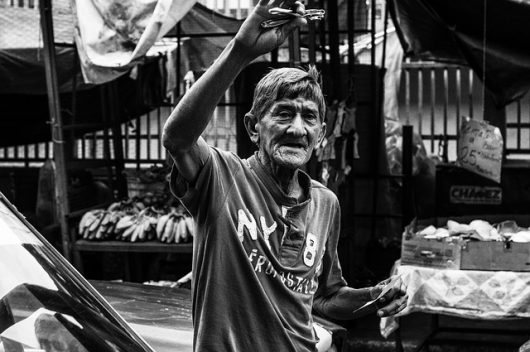The Complex Determinants of the Venezuela Poverty Rate
 In a country locked the throes of a terrible economic crisis, the Venezuela poverty rate continues to rise. Eighty-two percent of the population now lives in poverty, and inflation rates are estimated to reach 680 percent by the end of this year. To make matters worse, this number is projected to rise to a whopping 2,069 percent by the end of 2018. Medicine and medical equipment has become increasingly scarce, as the public health system cannot afford to treat patients, and poverty and violent crime are reaching record levels.
In a country locked the throes of a terrible economic crisis, the Venezuela poverty rate continues to rise. Eighty-two percent of the population now lives in poverty, and inflation rates are estimated to reach 680 percent by the end of this year. To make matters worse, this number is projected to rise to a whopping 2,069 percent by the end of 2018. Medicine and medical equipment has become increasingly scarce, as the public health system cannot afford to treat patients, and poverty and violent crime are reaching record levels.
So, how did a country that experienced not insignificant economic growth under Chavez, become embroiled in an unprecedented bout of hyperinflation? Rampant governmental corruption and a drop in oil prices are the major contributors. Venezuela boasts the world’s largest proven oil reserves, and, under Chavez, leveraged high gas prices to create nationwide economic growth.
According to historian Greg Grandon, Chavez saw high petroleum prices as “a way to tax the First World, and then redistribute that revenue through equitable social programs, solidarity and support for poor energy-importing nations.” However, since oil prices began falling in 2013, the nation’s dependency on oil as the center of its economy has left the country in the depths of economic collapse.
Yet another factor in the collapse, and the source of much of the corruption in government, stems from the coexistence of different currency exchange rates and the ever-growing gap between the official rates and the black market rate. The lower official rate is set at 10 bolivares/dollar. This rate is used for “essential imports” such as food, medicine and materials for domestic production of necessary goods.
In addition to this standard currency rate, there is a fluctuating black-market rate, which has risen enormously over the past several years. This rate is currently well over 1,000 bolivares/dollar and was last measured at 1,567 bolivars/dollar on Nov. 1. This yawning gulf between exchange rates has wildly devalued currency. It also provides government, business and military officials, who are provided dollars using the lower official exchange rate, to change this money on the black market to rake in obscene profits.
As the economic crisis intensifies and the Venezuela poverty rate increases, President Nicolas Maduro’s popularity has plummeted. He has responded to popular protests by removing the Congress’s legislative power, and has taken on increasingly authoritarian policies. The opposition-led Congress is understandably outraged, and has led efforts to remove Maduro from power and to substantially privatize Venezuela’s socialized industries — most notably the national oil company PDVSA.
Although many criticize the socialist policies of Venezuela, the crisis has been born of a complex network of mismanagement of currency, dropping oil prices, authoritarian political crackdown, and rampant corruption. As the crisis intensifies and the Venezuela poverty rate continues to rise, the urgency of aid and comprehensive political reform increases.
– Jeffery Harrell
Photo: Pixabay
